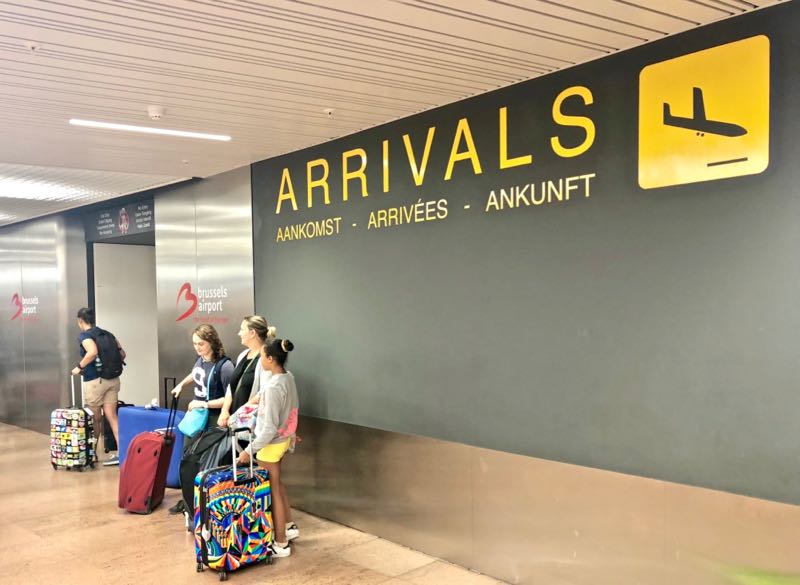Travellers returning to Brussels following a winter break in another country are at the root of the increasing coronavirus figures in the region, according to a member of the Brussels Health Inspectorate.
"For a few days now, we have been seeing a serious increase in the number of people testing positive for the coronavirus in the Brussels-Capital Region," Inge Neven told media on Monday. To her, this increase is linked to a massive influx of passengers and is in line with predictions made by experts over the past weeks.
"In the past two weeks, we have had some 50,000 travellers returning from red zones. And a lot of them were tested on the first and seventh day. So we can attribute most of the increase to that. Of course, the increase also has to do with the fact that more people are being tested."
In Belgium as a whole, an average of 1,816 new people tested positive per day over the past week, which is a 14% increase compared to the week before.
In the Brussels-Capital Region, a specific rise in infections has been seen in the expat-heavy areas, according to Neven. "The number of tests has almost doubled last week. And this is reflected in new infections. Especially in Woluwé -Saint-Pierre, Auderghem, Etterbeek, Ixelles and Forest," she told RTBF. These also happen to be the areas with the most Passenger Location Forms (PLF) filled out, she added.
Related News
- Two returning travellers positive with British coronavirus strain
- Rising Covid-19 cases in Brussels 'very likely' due to returning travellers
- Belgium's daily coronavirus infections continue to rise
"Of course, many of these forms also mean a lot more testing, so you can see that the number of infections has also increased considerably," Neven added.
More tests on travellers
The high number of infections - and PLF forms - also highlight an important factor here. At the moment, the majority of travellers arriving in the country must undergo a mandatory test, while people who stay here do not.
As of 31 December, Belgium has required a mandatory quarantine after a stay of more than 48 hours in a red zone. This means that everyone (residents and non-residents) who returns to Belgium after a stay of at least 48 hours in a red zone will have to go into quarantine. The quarantine can only be ended after a negative PCR test on day 7 of the quarantine.
A PCR test is required on return on day 1 and day 7 of quarantine. From Saturday, January 2, 2021, people will receive a text message after their return with which they can register at a test centre.
Speaking before Christmas, virologist and interfederal Covid-19 spokesperson Steven Van Gucht told The Brussels Times he feared what could happen when people returned from visiting their family and friends abroad.
“I am holding my breath for when they return, it is going to be a critical moment,” he said. “I hope that we will get through it in one piece.”
Ultimately, while rising infections can be seen as alarming, the important factor stated by experts is how things are handled once those infected are within the country. "If everyone respects the quarantine measures, the imported virus will not spread further into the population,” explained Van Gucht.
“Even if most expats themselves are not so much at risk, they need to realise that the virus is going to lead a second, third and fourth life in so many people after them, and that could really have serious consequences,” Van Gucht added.
The Brussels Times
Update: this story has been updated to add additional comments from Inge Neven.

